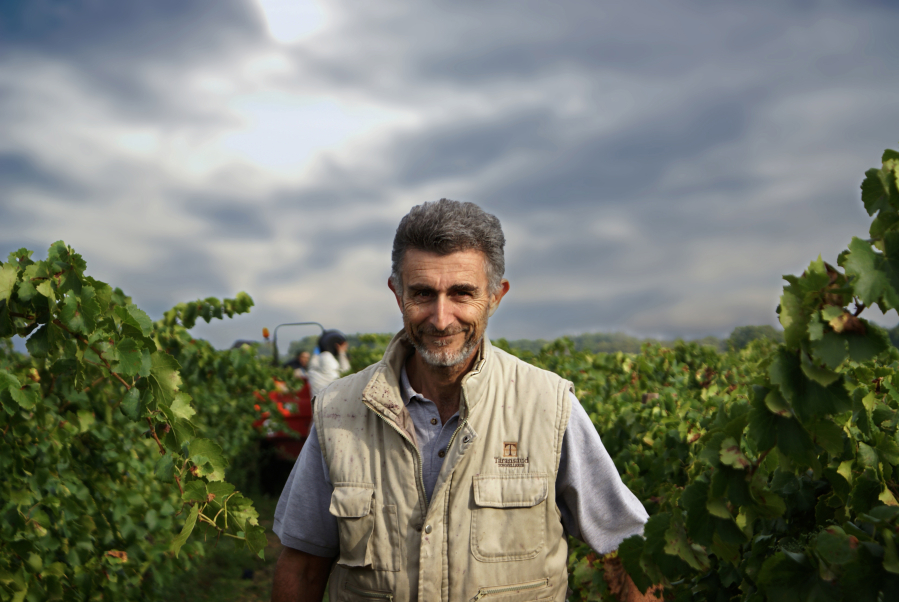The vinoscenti seek out wines of terroir, those that taste of a place and could come from nowhere else. The great vineyards of the world command exorbitant prices for their wines. Those of us who love to experience this singular expression of the grape but can’t always afford the most prestigious cuvees seek out wines from similar but less exalted regions. And when we find a talented winemaker in such a region, we hit the jackpot.
Michel Gassier is such a winemaker. Gassier is a fourth-generation vigneron in the Costières de Nîmes appellation in southern France. Costières de Nîmes, just southwest of Avignon, is the southernmost extension of the Rhone Valley, as though the region was stretching its foot into the Languedoc to try to stick a toe in the Mediterranean. Vineyard soils in Costières de Nîmes resemble the famous terroir of Chateauneuf-du-Pape, but with a significant difference in climate.
“We have the same pebbly soil as Chateauneuf,” Gassier says, “but we also have the Mediterranean.” Chateauneuf is famous for the round stones that absorb the sun’s heat and reflect it back on the grapes, helping them ripen. The wines of Chateauneuf-du-Pape have become sought after and expensive over the past 20 years. But they often tend to be heady, with alcohol levels approaching 15 percent or more. Some producers are trying to moderate the alcohol in response to market demand for more elegant, restrained wines.
In Costières de Nîmes, Gassier, argues, restraint comes naturally.
“We are less than 10 miles from the sea, and the thermal winds cool the temperatures so the fruit is fresher and retains acid better,” he says. The maritime breeze deposits dew on the vines in the morning, helping alleviate water stress, but the dew burns off in the midday sun, avoiding disease pressure. Vines were first planted in the region by the Greeks around 600 B.C.



